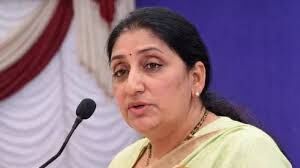How students can effectively prepare for CBSE Board Exams

Preparing for CBSE (Central Board of Secondary Education) Board Exams requires a systematic and focused approach. Board exam preparation can be a stressful experience for students, requiring focus, dedication, and hard work. However, by creating a comprehensive plan, setting realistic goals, and staying organized, students can reduce stress and increase their chances of success.Time management is a significant challenge for students, as they may have extracurricular activities, work, and social engagements.
To prepare for board exams, it’s essential to develop a schedule that allows students to study the syllabus over time, rather than the night before the exam. This helps them review and retain information, and study plans are crucial for self-discipline and determination.The initial days can be crucial for effective preparation, providing a comprehensive overview of the syllabus, identifying challenging areas, organizing study materials, and dedicating time to grasp fundamental concepts, thus forming the foundation of a structured study routine. Students should segregate topics and allocate specific time for each, allowing comprehensive coverage.
This promotes in-depth study, fundamental comprehension, and initial practice, laying a strong foundation for revision and advanced practice sessions.A dynamic study plan is crucial for strengthening knowledge and enhancing preparedness. it involves intense revision, consolidating learning, and extensive practice. It’s essential for solidifying understanding, identifying weak spots, and refining exam-taking strategies. A strategic planning reinforces knowledge, boosts confidence, and improves exam-taking skills before exams.Most importantly students should focus on concentrated revision, retaining key information, reviewing formulas, and solving practice tests to solidify knowledge, boost confidence, and ensure a well-prepared mindset for exams.
While doing so, they should avail themselves of textbooks, reference materials, online resources, and educational apps for comprehensive study material. Regular short breaks and seeking clarification from teachers or mentors on complex topics or study strategies will further bring them closer to their desired goals.Creating a study plan tailored to individual interests and schedule to ensure covering all necessary topics in time for the exam is a key.
Students need to break down their study into manageable chunks and use the plan to stay on track. Sticking to the study plan is crucial. With the right preparation, students can maximize energy and minimize stress, ensuring best performance and high score.The faculty should thoroughly understand the board exam pattern and structure. This includes the types of questions, marking schemes, and any changes in the format.
The teachers should ensure that the entire syllabus is covered well in advance of the exams and plan the academic year to allow sufficient time for revision. Teachers should plan lessons strategically, focusing on key topics and concepts that are likely to be tested in the exams and emphasize foundational concepts that form the basis for more complex topics.Schools should always conduct regular assessments, including quizzes, tests, and mock exams, to gauge the students’ understanding of the material and provide constructive feedback on assessments to help students identify and rectify their mistakes. There should also be regular revision sessions incorporated into the teaching schedule.
This can include quick recaps, revision games, and discussions to reinforce learning. The faculty and also the parents should encourage an open environment where students feel comfortable asking questions, addressing doubts promptly and encouraging peer learning. They should also provide supplementary study materials, reference books, and online resources that can aid in understanding complex topics.
Furthermore, schools need to integrate technology into teaching methods. Online resources, educational apps, and multimedia presentations make learning more engaging and effective for students. To boost students’ confidence, schools should offer encouragement and support, recognize their achievements, and conduct motivational sessions. They can also encourage parent-teacher collaboration by keeping them informed about their wards’ progress and involving them in preparation.
(The author is Principal, Modern Public School, new delhi)














